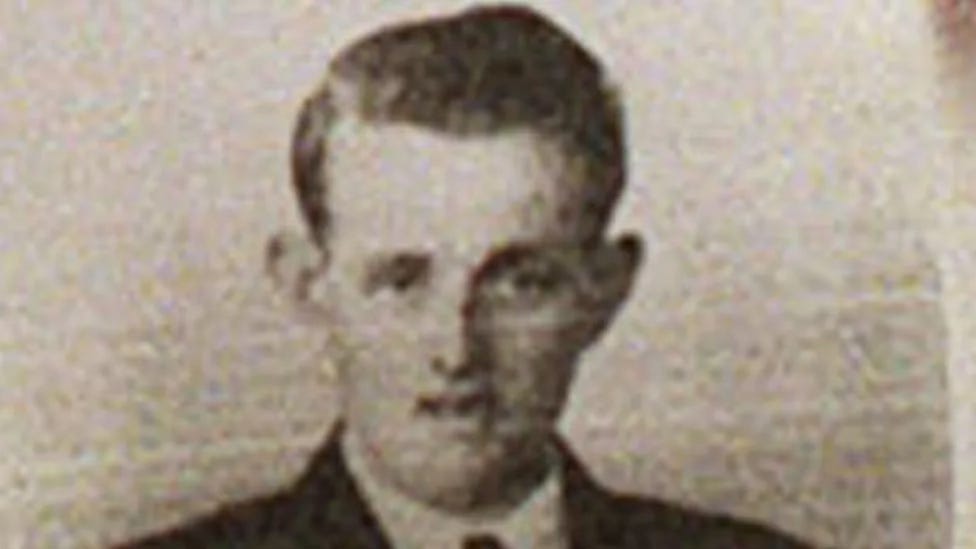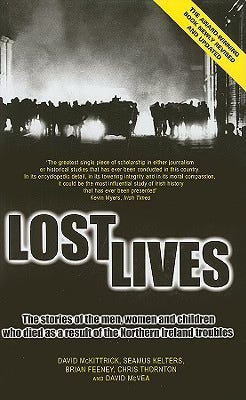May 1976 saw Columbia Records release "Turnstiles", singer-songwriter Billy Joel's fourth studio album. In Northern Ireland, members of the IRSP could have used some turnstiles for their tunnel, given the number of escapees from Long Kesh.
Political Developments in May 1976
May 1976 began with Kenneth Newman replacing Jamie Flanagan as the Chief Constable of the Royal Ulster Constabulary RUC. This appointment marked the beginning of the policy of 'Ulsterisation' which had the full approval of the British government.
On the 5th of May, nine members of the Irish Republican Socialist Party escaped from the Maze Prison through a tunnel.
The nine men dug their tunnel from one of the four huts in Cage 5, known as ‘Mole Hill’ because so many tunnels have been dug there. Despite vigilant warders, the escapees dug a 40-foot tunnel measuring only 18 inches in diameter. The tunnel's entrance was concealed by tile glued to a wood block. The escapees’ first problem occurred when they emerged from the tunnel to find that they were still inside the prison. However, they were prepared for such an eventuality. They cut through a perimeter barbed wire fence and scaled a 20-foot-high wall with improvised grappling hooks and ropes made from sheets, in full view of British Army observation towers. Then, as one British soldier put it, “they disappeared into thin air!”.
The following morning, their fellow prisoners refused to leave their huts to delay the discovery of the escape. It was only when Charles O’Doherty from Old Park, Belfast, was caught by the RUC in a field eight miles away. He was checked out as a matter of routine, and it was then that the RUC discovered they were supposed to be in Long Kesh! They immediately contacted the prison, and the escape was discovered.
The following day, eight members of the SAS were arrested in the Republic of Ireland. The official explanation was that the soldiers had made a map reading error and accidentally crossed the border. During the Northern Ireland conflict, there were many instances of British Army personnel and vehicles, including aircraft, making illegal crossings of the border. In March 1976, SAS soldiers crossed the border and grabbed IRA commander Seán McKenna from his home before handing him over to a British Army patrol on the northern side of the border.
The UVF announced the beginning of a three-month ceasefire on the 22nd of May. This ceasefire was, however, broken on several occasions, the first of which was on the 5th of June 1976 when five civilians were shot dead.
Three days later, the Ulster Service Corps, a Loyalist paramilitary grouping, announced that it was going to mount 'patrols' because of the 'deteriorating security situation'.
Shootings in May 1976
02/05/76 - Seamus Ludlow (47), a Catholic civilian, who was an unmarried forestry worker from Thistle Cross, Dundalk, County Louth, was killed in the early hours of the morning. He was shot several times. Initially, the IRA was suspected by some members of the Irish police. Later members of Ludlow's family concluded that the UVF/Red Hand Commando were responsible. The family have pressed the British government for an Inquiry.
13/05/76 - The UFF claimed responsibility for shooting dead Protestant civilian Gregory Brown (26) on Woodstock Road, Belfast. It was alleged that he was an informant.
15/05/76 - RUC officer James Hunter (33) was killed during an IRA sniper attack on an RUC mobile patrol, Warrenpoint, County Down.
15/05/76 - A gun attack on the Eagle Bar led to the death of Catholic civilian Frederick McLoughlin (48), who died two weeks after being shot, and the wounding of many others.
16/05/76 - The IRA shot dead RUC officer Kenneth Nelson (28) outside his home in Derryfubble, County Tyrone.
16/05/76 - Civilians Roy McIlwaine (35) and William Martin (53) were shot dead as they stood outside a social club on Alliance Road, Belfast.
17/05/76 - James Gallagher (20) was shot dead as he travelled as a passenger on a bus, past Fort George British Army base, Strand Road, Derry. The soldier who shot him was on sentry duty in the base and as he handed over his rifle is reported to have said, "I'm cracking, I'm cracking". Two other passengers on the bus, a man and a woman, were injured in the incident. Later Gallagher was listed on a Republican roll of honour as an IRA member.
17/05/76 - Protestant civilians Robert Dobson (35) and Thomas Dobson (38) were shot dead by Republican paramilitaries at a factory in Dungannon Street, Moy, County Tyrone.
22/05/76 - RUC officer John McCambridge (21) was shot dead in an IRA gun attack in Dungannon, County Tyrone.
25/05/76 - The INLA shot and seriously wounded female RUC officer Hazel McCready in Lurgan, County Armagh. Her husband, also an RUC officer, escaped injury.
27/05/76 - The UVF shot dead Catholic civilian Gerard Masterson (34) at his home on Allworthy Avenue, Belfast.
30/05/76 - Catholic civilian John Ritchie (31) was found shot dead in his milk float on Springhill Avenue, Belfast. He was shot from close range and his vehicle crashed into a fence. He was killed by UDA members who picked him out coming from the depot and followed him around the streets. His colleagues went on strike in protest.
31/05/76 - The INLA fired on DUP politician Charlie Poots as he drove through the Market area of Belfast. He escaped injury.
Bombings in May 1976

15/05/76 - RUC officers Henry Keys (29), Francis Kettyles (39) and Harry Evans (33) were killed in an IRA landmine attack on their patrol in Belcoo, Fermanagh.
15/05/76 - Five Catholic civilians were killed in two separate bomb attacks carried out by the UVF. One bomb killed Francis Heaney (46) and Henry McMahon (39) at the Avenue Bar, Union Street, Belfast. The second bomb was at Clancey's Bar, Charlemont, County Armagh, killing Felix Clancy (54), Sean O’Hagan (22) and Robert McCullough (41). Many other Catholic civilians were injured in the explosions. A UDR soldier was later convicted for taking part in the attacks, which have been linked to the Glenanne Gang.
21/05/76 - Civilian Roberta Bartholomew (22) was killed when a bomb exploded on a train near Moira, County Down. A warning was given but the bomb detonated before the area could be evacuated.
28/05/76 - The UDA detonated a no-warning bomb in the Club Bar on University Street, Belfast. Civilians Paul Hamill (21) and David Robinson (23), one Catholic and one Protestant, were killed. The pub attracted both Catholics and Protestants and had been attacked by loyalists many times.
Thanks very much for reading. I hope you found it interesting and will come back on Sunday!
I appreciate everyone who recently hit that heart icon ❤️ at the bottom. It makes it easier for other people to find this newsletter.
Thanks for the support!
If you’d like to let me know what you thought of today’s instalment, feel free to leave a comment below.
Some recommended reading based on research for this instalment.





